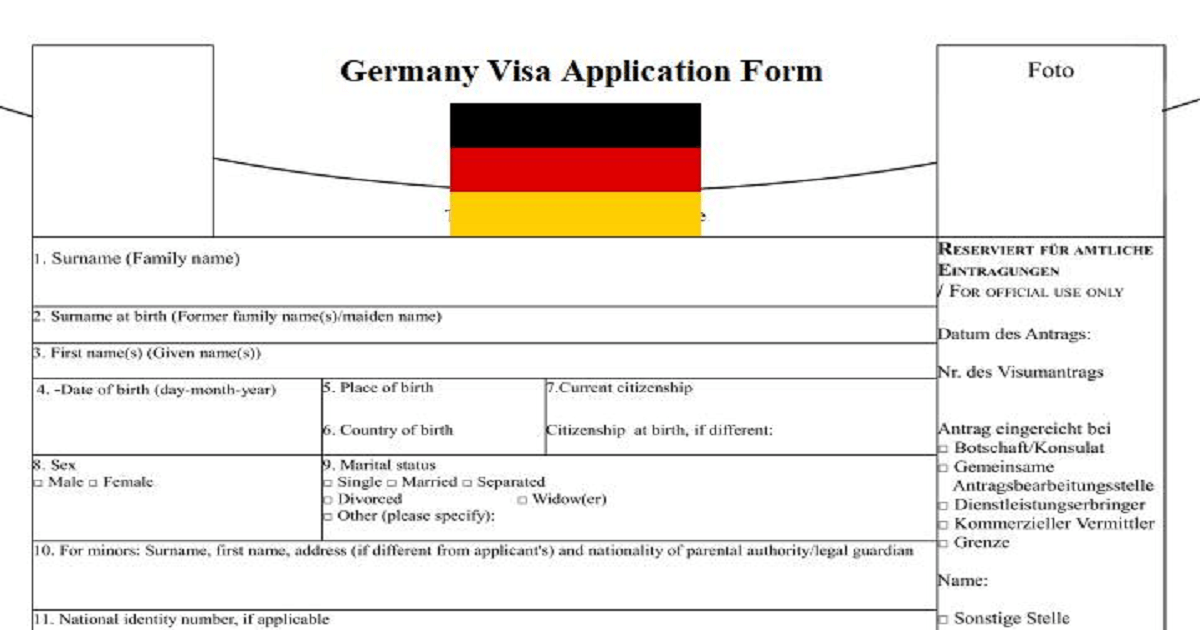Switzerland is not just famous for its stunning Alps or delicious chocolates. The country boasts a robust economy, one of the highest GDP per capita in the world, and is home to various international organizations and multinational corporations. High salaries, excellent working conditions, and a healthy work-life balance make Switzerland a dream destination for professionals. However, working here requires a valid work permit visa, and the process can differ depending on your nationality and the type of work you intend to do.
Switzerland, known for its stunning landscapes, high quality of life, and prosperous economy, is a top destination for professionals worldwide. For Bangladeshi citizens seeking to work in Switzerland in 2024, securing a work permit visa can open doors to career opportunities in one of the world’s most advanced economies.Switzerland’s work visa system is structured to attract skilled professionals while maintaining control over immigration. As a non-European Union (EU) or European Free Trade Association (EFTA) national, Bangladeshi citizens must meet specific criteria to obtain a work permit. This article provides a detailed guide to the process, requirements, and opportunities for Bangladeshi nationals seeking to work in Switzerland in 2024.
Types of Work Permit Visas in Switzerland
Switzerland has a tiered system of work permits, and your eligibility depends on several factors, including your nationality, the duration of your stay, and your employer. There are different types of permits, and it’s crucial to understand each one.
-
L Permit (Short-Term Work Permit):
The L Permit is issued to individuals who intend to stay in Switzerland for a short period, typically less than a year. It is usually granted to people employed for specific projects or short-term roles. This permit is often renewable if the employment extends beyond the initial period. -
B Permit (Temporary Residence Permit):
The B Permit is the most common work permit for foreign nationals intending to stay in Switzerland for a long-term or indefinite period. This permit is usually issued to individuals with a long-term employment contract, and it allows them to reside and work in Switzerland for an extended duration. It is valid for up to one year but can be renewed annually. -
C Permit (Permanent Residence Permit):
After living in Switzerland for five to ten years, depending on the applicant’s nationality, you may be eligible for a C Permit, also known as a permanent residence permit. This permit allows you to live and work in Switzerland without restrictions and offers more stability for long-term residents. -
G Permit (Cross-Border Commuter Permit):
If you live in a neighboring country (Germany, France, Italy, or Austria) but commute to Switzerland for work, you will need a G Permit. This permit allows individuals to work in Switzerland while living in a nearby country, returning home at least once a week. -
Seasonal Work Permits:
Seasonal work permits are for individuals working in specific sectors, such as tourism or agriculture, where demand for labor fluctuates depending on the time of year. These permits are generally short-term and are often issued for a maximum of six months.
Eligibility Criteria for a Swiss Work Permit
Switzerland has a dual system for granting work permits based on nationality:
-
EU/EFTA Nationals:
Citizens of EU (European Union) or EFTA (European Free Trade Association) countries benefit from more relaxed rules when applying for work permits in Switzerland. They do not require a visa to enter the country and can apply directly for a work permit after securing a job. The process is relatively straightforward, and quotas for these permits are generally higher. -
Non-EU/EFTA Nationals:
Citizens from non-EU/EFTA countries face stricter requirements. The Swiss government prioritizes the employment of Swiss citizens and EU/EFTA nationals, meaning employers must prove that there are no suitable candidates from these regions before hiring non-EU/EFTA nationals. In addition, non-EU/EFTA applicants must have specific skills or qualifications that are in demand, and they usually need to secure a job offer from a Swiss employer before applying for a work permit.
Application Process for a Switzerland Work Permit Visa
Securing a work permit visa in Switzerland involves a multi-step process. It’s important to understand these steps to ensure a smooth application:
-
Job Offer:
The first and most crucial step is securing a job offer from a Swiss employer. The employer must confirm that no Swiss or EU/EFTA nationals are available to fill the position. Once a job offer is secured, the employer will usually initiate the work permit application process on behalf of the foreign worker. -
Application Submission:
For non-EU/EFTA nationals, the Swiss employer submits the application to the cantonal labor authorities, providing documentation such as proof of the job offer, details about the company, and information about the employee’s qualifications and experience. EU/EFTA nationals may apply directly for a work permit after arriving in Switzerland with a valid job offer. -
Cantonal Approval:
Each Swiss canton has its own labor office responsible for reviewing work permit applications. The cantonal authority will assess the application based on local labor market needs, the employee’s qualifications, and the employer’s justification for hiring a foreign worker. If the canton approves the application, it will be forwarded to the State Secretariat for Migration (SEM) for final approval. -
Federal Approval:
Once the cantonal labor office approves the application, the SEM will review it and ensure it complies with national laws and regulations. Upon federal approval, the work permit is issued, and the employee can begin working in Switzerland. -
Visa Issuance (for Non-EU/EFTA Nationals):
After federal approval, non-EU/EFTA nationals will need to apply for a long-term visa at the Swiss embassy or consulate in their home country. This visa allows them to enter Switzerland and receive their residence permit, which is issued upon arrival.
Key Documents Required
To apply for a Switzerland work permit visa, the following documents are generally required:
- Valid passport
- Employment contract or job offer letter from a Swiss employer
- Proof of qualifications and experience (e.g., diplomas, certificates)
- CV or resume
- Health insurance coverage
- Proof of accommodation in Switzerland
- Visa application form (for non-EU/EFTA nationals)
It’s essential to ensure that all documents are accurate, complete, and translated into either English, French, German, or Italian if necessary.
Processing Time and Fees
The processing time for a Switzerland work permit varies depending on the type of permit and the applicant’s nationality. For EU/EFTA nationals, the process is typically quicker and can take a few weeks. Non-EU/EFTA nationals may experience longer processing times, usually between 8 to 12 weeks. The fees for a Swiss work permit application also vary depending on the type of permit and the applicant’s country of origin, ranging from CHF 100 to CHF 150.
Working Conditions and Rights in Switzerland
Switzerland is known for its excellent working conditions, fair wages, and worker protections. Employees in Switzerland benefit from generous social security, healthcare, and pension systems. The standard workweek is usually 40 to 42 hours, depending on the industry, and employees are entitled to at least four weeks of paid vacation each year.
Moreover, Swiss labor laws guarantee non-discrimination in the workplace, protection from wrongful termination, and rights to maternity and paternity leave. Understanding your rights as a foreign worker in Switzerland is crucial to ensuring a positive and successful employment experience.
Conclusion
Securing a work permit visa for Switzerland is an essential step toward building a rewarding career in one of the world’s most desirable countries. By understanding the different types of work permits, the application process, and the necessary requirements, you can navigate the system with confidence and start your professional journey in Switzerland. Whether you’re an EU/EFTA national or a non-EU/EFTA national, Switzerland offers vast opportunities for skilled professionals in various sectors, making it a top destination for those seeking employment abroad.
 Job Pagol Pagol Kora Website for Bangladeshi Jobs
Job Pagol Pagol Kora Website for Bangladeshi Jobs



